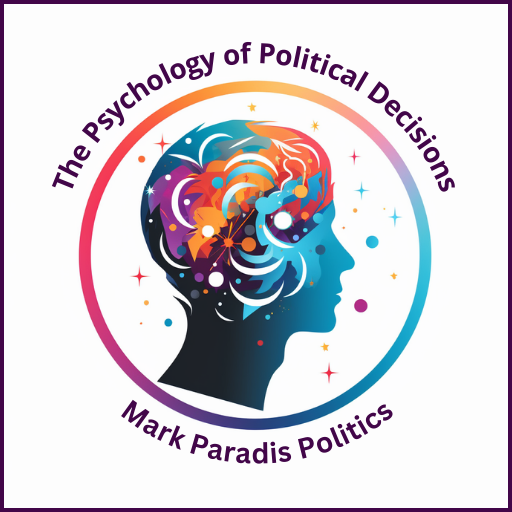In democracies around the world, politics feels different. We can all agree that there are a lot of problems, but we don’t seem to be able to agree on what exactly those problems are and what we should do about them. We don’t seem to be able to agree on much at all. We don’t seem to share the same facts. We hardly even seem to share the same language.
On this site, I want to take a first step towards addressing these issues by exploring what we know about the psychology of decision-making. Why do we hold the attitudes that we hold? Why do some people get involved in politics? How do leaders make decisions? Why are we so divided? Social scientists have learned a great deal about these problems, but we are generally terrible at communicating this information to the public. I want to address this issue. I want us to start speaking a common language, to be able to understand each other, and to start solving some problems.
This site isn’t going to argue that one ideology, set of values, or policy preference is better than the other. There is plenty of blame to go around for the problems we face today. However, we won’t overcome these challenges by pointing fingers. We’ll begin to solve problems when we understand how opinions and decisions are actually made.
What You'll Learn
We currently face a lot of problems in society, but that also means that we have a lot of opportunity for learning and growing. My goal isn’t just to help you make better political decisions, but also to make better personal and business decisions. Here’s some of the things that we’ll cover:
- How people actually make decisions. Most people, including many academics, journalists, and politicians, fundamentally misunderstand how people actually make judgments and decisions. Overcoming these misunderstandings can help you make better decisions.
- Why we are so divided. We all can see that our families, our communities, our politicians, and our societies are deeply divided. While disagreements in politics (and in life) are inevitable, polarization has increased over recent decades. Understanding the causes of the growing divide can help us to start solving problems.
- Why people believe what they do. Whether you are a conservative, liberal, libertarian, moderate, populist, or you just have all politics, you’ve certainly come across a lot of views that don’t seem to make much sense to you. You are left wondering how someone could possibly hold a particular viewpoint. It happens to all of us, regardless of ideology. However, when we turn to the psychology of poltics, we learn that these views generally make a lot of sense once we look at a person’s psychological needs. If we can understand why people hold these views, then we will be better able to design policy solutions that satisfy their underlying needs.
- Why it is so difficult to persuade others. We all have that uncle at family gathering who has the strangest political views. We’ve all made the mistake of engaging in “debate” with others on social media. No matter where you are discussing politics, you’ve probably noticed that it can be almost impossible to persuade others. Even when you come armed with highly relevant facts and even when you are able to refute all of their arguments, they still cling to their views. It can be maddening. Unfortunately, most people don’t understand the fundamentals of persuasion. In fact, most people generally select the worst possible strategies. Once we change our persuasion strategies, we can have more productive discussions.
- Why some people are more successful than others. From business to politics, some people rise to the top, while others sink to the bottom. While success is partially determined by innate abilities that are beyond our control—no matter how hard I try, I’m never going to be a professional hockey player—a great deal of success is within our control. By examining the psychology and decision-making of successful leaders, we can learn to maximize our prospects for success.
Site Features
- An Articles section: The main goal of this website is to raise the public’s understanding of the psychology of politics to help you make better decisions and to help us solve problems. In order to do so, I will release weekly articles that will cover a range of topics, including decision-making, emotions, ideology, misinformation, morality, partisanship, trust, and voting. These articles will consist of:
- Introductory Articles: One of the key problems in politics is that we don’t seem to be speaking the same language. Even when we use the same words, they mean drastically different things to different people. Introductory articles help to overcome this divide by providing longer introduction to key concepts that create a shared understanding. For example,
- the Introduction to Political Knowledge article discusses how our understanding of what citizens know about politics, and how they use that knowledge to make decisions, has evolved over time, and
- Topic Discussions: Building on what we’ve learned in the introductory articles, the topic discussions will go in depth on the psychology of political decision-making. These are the main articles of the site. Topic discussions will be categorized for ease of navigation.
- Introductory Articles: One of the key problems in politics is that we don’t seem to be speaking the same language. Even when we use the same words, they mean drastically different things to different people. Introductory articles help to overcome this divide by providing longer introduction to key concepts that create a shared understanding. For example,
- A Resources section: Hopefully some of the articles will excite or inspire you. For topics that you would like to learn more about, I will provide a variety of different additional material, including:
- Suggested Readings: A list of books related to the topics explored in the articles. They are searchable by primary discipline (e.g., political science, psychology), intended audience (e.g., academic, public), topics (e.g., decision-making, democracy, polarization), and authors.
- Websites (Coming Soon): A list of websites (blogs, researcher pages, simulations, and data) that will deepen your understanding of topics covered on this site.

Fighting On to Electoral Victory? College Football and Voting Behavior
Discover how college football and sporting events can subtly sway political opinions and voting behavior. Explore the intriguing link between mood, emotions, and decision-making, and learn about the potential impact of seemingly unrelated events on politics. Dive into the debate surrounding these effects and gain fresh insights into the world of voter psychology.
Introducing Emotions in Politics
This article introduces the important role of emotions in political decision-making. Rather than sources of error, emotions are necessary for rational decisions. We explore this important function of emotions, the role of specific emotions in politics, the surprising effect of emotions on unrelated decisions, and the role of emotions in political campaigns.
Our Brain’s Inner Politician Limits Democratic Accountability: The Human Mind Prioritizes Rationalization Over Truth
To protect our social status, our brains prioritize rationalizing our actions over finding the truth. Accountability sometimes activates truth-seeking, but only under limited circumstances. This poses challenges for democratic accountability.
Who Am I?
My name is Dr. Mark Paradis. I teach and research politics in Montreal, Canada. I received my PhD in Political Science from the University of Southern California in 2016. My research focus includes political psychology, public opinion, foreign policy, and experimental methods. You can learn more about me, my research, and my teaching on my biography page. I created this website to help address the growing divide that we see within democratic societies and the growing anger about failures to address real problems.

